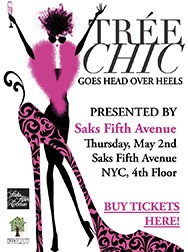When to Get the Vaccine After Having COVID-19

By NewYork-Presbyterian Health Matters
May 19, 2021: Hundreds of millions doses of COVID-19 vaccines have been administered in the United States as of May 5, according to the Centers for Disease Control and Prevention, and the vaccine is now more accessible, with anyone over age 12 eligible to get the shot.
Though vaccines are now widely available, the virus is still circulating, with tens of thousands of people diagnosed with COVID-19 every day. This has some people wondering: If I’ve recently tested positive for COVID-19, how long should I wait to be vaccinated?
To help answer this question, Health Matters spoke with Dr. David Goldberg, an internist and infectious disease specialist at NewYork-Presbyterian Medical Group Westchester. Dr. Goldberg stressed the importance of getting the vaccine if you’ve had COVID-19.
“Having had a COVID-19 infection gives you a certain level of protection, but getting the vaccine afterwards will give you even greater protection and for a longer period of time,” says Dr. Goldberg, who is also an assistant professor of medicine at Columbia University Vagelos College of Physicians and Surgeons. “In addition, there is evidence that getting the vaccine may help protect you against COVID-19 variants.”
Here are Dr. Goldberg’s tips for planning your COVID-19 vaccine if you’ve recently had the disease.
1. If you’ve tested positive for COVID-19, wait until you are no longer infectious to get the vaccine. The CDC says most people do not have active COVID-19 infection after 10 days, so you should wait at least 10 days from the onset of illness to receive your vaccine. If you tested positive but didn’t show any symptoms, you should wait at least 10 days from the date of the positive test. There is no need to wait longer than that.
While there is no known danger in receiving the vaccine too early after having COVID-19, getting a vaccine while you are infectious may make the vaccine less effective because your immune system might be suppressed by COVID-19, Dr. Goldberg says. Some COVID-19 symptoms — such as loss of senses of smell and taste, fatigue, or body aches — may last longer than 10 days, but waiting 10 days until you are no longer infectious is what’s important.
2. If you had COVID-19 and were treated with monoclonal antibodies or convalescent plasma, wait at least 90 days before getting a COVID-19 vaccine. A number of patients have received convalescent plasma, which is blood from recovered COVID-19 patients; it is authorized for hospitalized patients. Another treatment, monoclonal antibodies, aims to prevent high-risk COVID-19 patients from having to be hospitalized. Monoclonal antibodies are given as an intravenous infusion to patients who have mild to moderate symptoms of COVID-19 and are at high risk of their illness becoming severe. This includes people 65 and older and those who are obese or have medical conditions such as diabetes, obesity, or kidney disease.
All the vaccines are based upon exposing a person to the spike protein, which is found on the surface of the virus that causes COVID-19. This exposure is what stimulates an immune response. Monoclonal antibodies may stay in your system for up to 90 days, and they might neutralize the spike protein in the vaccine and prevent the immune response from occurring, Dr. Goldberg explains.
3. It doesn’t make a difference which vaccine you receive. The recommendation for people who have recently recovered from COVID-19, as for all other situations, is to take whichever vaccine is available to you. If you are offered the two-dose Moderna or Pfizer vaccine, make sure you get both doses. The second dose seems to be particularly beneficial in protecting against the variants.
“It’s important to get vaccinated if you’ve had COVID-19, and to get it at the right time so it’s as effective as possible,” says Dr. Goldberg. “You’ll protect yourself, your family, and your friends, and help keep us on course for ending this pandemic.”
For more articles like this, visit Health Matters
Editor's note: As a public service, MyhometownBronxville publishes articles from local institutions, officeholders, and individuals. MyhometownBronxville does not fact-check statements therein, and any opinions expressed do not necessarily reflect the thinking of its staff.








